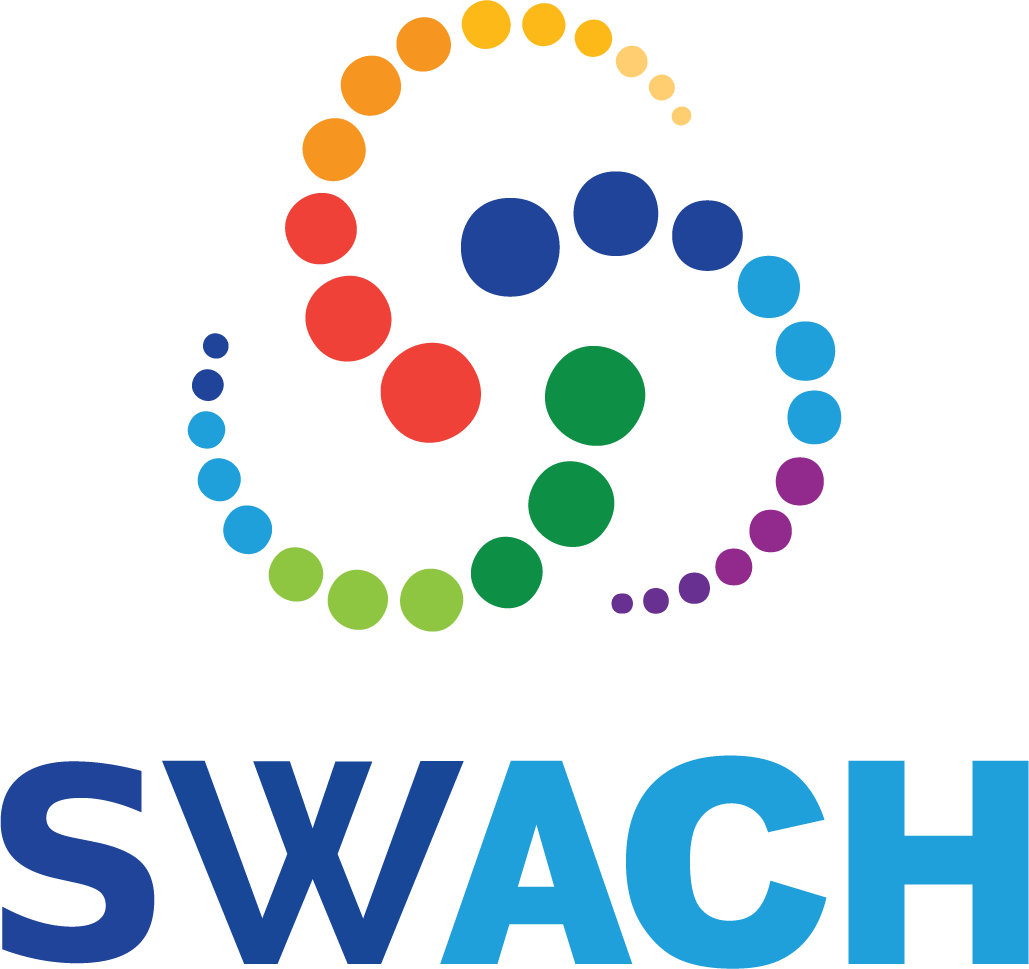
Presenter Bios
Get to know the conference speakers and presenters
We are excited to welcome a variety of experts and leaders from across our region. Get to know the speakers and presenters at the SW WA Power Building Conference.

Paul Lindberg (Keynote)
Paul Lindberg, JD, is a Collective Impact Health Specialist, working in several communities in Oregon and Washington. Through this unique community-based role, primarily funded by Providence Health, Mr. Lindberg utilizes 30+ years of community-based experience to work across sectors identifying needs, helping design initiatives to address those needs, and securing funding to support those initiatives. To date, this work has launched 100+ new collaborative initiatives and secured $32+ million in grant funding to address a variety of community-identified needs. The Robert Wood Johnson Foundation specifically recognized the Collective Impact Health Specialist role when it awarded the community its Culture of Health Prize in 2016.
Mr. Lindberg has served as Lead Research Scholar for TEDMED (prior to Covid), vetting speakers for the TEDMED program. He also sat on the Robert Wood Johnson Foundation’s Culture of Health Prize National Advisory Group from 2018 – 2022 as one of 12 members and the only one representing rural and prior winners, among other advisory roles for the Foundation. He also currently an Advisor to National Academy of Medicine Culture of Health Team and sits on the North Central Regional Solutions Advisory Committee, a program under Oregon Governor Tina Kotek’s office.

Jamie Spinelli (Behavioral Health Track, Session 1)
Jamie Spinelli is the Homeless Response Manager in the City Manager’s Office, where she leads the development and implementation of Vancouver’s response to unsheltered homelessness. She manages the City’s Homeless Assistance and Resources Team (HART) and makes policy, programming, and funding recommendations that reduce the impacts of unsheltered homelessness while supporting long-term solutions to end homelessness. Before joining the City, Jamie worked with various nonprofits providing support services for individuals living with mental/behavioral health challenges and experiencing chronic unsheltered homelessness, and co-founded a grassroots nonprofit providing advocacy, street outreach, and hygiene services.

Siobhana R. “Q” McEwen (Policy & Advocacy Track, Session 1)
Siobhana R. “Q” McEwen is a disrupter who cracks dad-jokes in meetings, with their whole belly, and hollers with her son indoors. Q is also known for providing critical, functional feedback to systems keepers and maintainers whether it’s solicited or not. A clinically-trained social worker turned policy and advocacy nerd, she wholeheartedly holds herself and those around her in power to an expectation of anti-racism, fierce love and compassion, and accountability. She loves good coffee, great beer, and all kinds of music. She is a bi-racial wife, daughter, sister, veteran, and Bibi to a bi-racial four year old. She lives in Vancouver, Wash., with her family and their two fur babies, Moxxie and Alberta Gene, and currently works as the Executive Director of the Southwest Washington Equity Coalition.
Siobhana holds a Bachelors in Secondary Education from Chadron State College, and a Masters in Social Work from the University of Washington, and serves on numerous boards and commissions devoted to promoting equity and community throughout SW Washington and beyond.

Dr. Eric Opoku Agyemang (Policy & Advocacy Track, Session 1)
Dr. Eric Opoku Agyemang is the Founder and CEO of Ibelong Consulting and Leadership Programs Director at Puget Sound Sage and Sage Leaders. He holds a Masters in Social Work and a PhD in Social Welfare from the University of Washington, Seattle.
At Sage, through the Community Leadership Institute, he recruits and trains emerging BIPOC leaders who are equipped to serve on strategic city, county, and statewide boards and commissions and influence policies impacting their communities.
After over 15 years of executive-level leadership in founding and leading various nonprofits in Washington and across the globe, he offers his expertise in organizational and leadership development, strategic planning, policy and advocacy, and research through Ibelong Consulting.
Read more here: https://www.ibelongconsulting.com/

Kay Alton, LICSW, M.Ed, RYT 500 (She, Hers, Her, Rural Health Track #1b)
Kay was born into an intentional community of nonprofit workers in Kenya, Africa and then Brussels, Belgium that centered their work around consensus building and third world development. At the tender age of 18 she completed a year long Technology of Participation training alongside her mother in their new home of Minneapolis, MN. The mother-daughter team led strategic planning sessions in the non-profit and for-profit sectors for years as Kay completed her first masters in Education. Kay was greatly influenced by her many canoe trips in the Boundary Waters of MN and found her way to Wilderness Therapy in Hawaii before returning to the mainland to complete her Masters in Social Work in 2012. Kay solidified her belief in the power of mindfulness through her advanced yoga training in Cambodia in 2015 before moving to the Columbia Gorge in 2016. Kay has been working with vulnerable populations ever since, most recently as an instrumental founder of programming at CultureSeed nonprofit that supports youth at the intersection of mental health and the outdoors. Kay is able to combine her technical training on the neuroscience of communication with her clinical and social lens of the impact of individual stories and systemic oppression to provide a strong container for folks to be seen and heard whether in one on one therapy or in groups. Kay recently left a lifetime of nonprofit work and has started her own private practice, Alton Counseling and Consulting LLC, that is focused on de-mystifying and de-specializing therapeutic work for individuals and organizations across the nation and abroad.

Barbara Gladue (Native & Tribal Track, Session 2)
*Oregon Tribal Public Health Manager | Advocate for Indigenous Communities*
With a deep passion for serving Indigenous communities, Barbara Gladue has extensive experience coordinating culturally appropriate and responsive programs and services that bolster resilience and self-determination. Her commitment to advancing public health and well-being for tribal nations is reflected in her collaborative efforts with tribal leaders, government agencies, non-profit organizations, and community members.
Barbara’s dedication to advancing the well-being of indigenous communities through culturally informed public health initiatives and her collaborative spirit make her a valuable advocate and leader in her field.
She was recently accepted to the Executive Masters of Public Administration at Portland State University. She works for Northwest Portland Area Indian Health Board.

Lauren Henricksen (Collective Impact and Equity Panel)
Lauren Henricksen is a Program Coordinator on the Healthy Communities team with Clark County Public Health in Vancouver, Washington. Her work has been focused on place-based initiatives to eliminate health disparities and promote health equity at the neighborhood level through partnerships, coalition-building and policy change. She has worked for Clark and Cowlitz counties in public health and chronic disease prevention for the last 9 years. Lauren has over 14 years of experience in building community partnerships, and facilitating broad-based public health and capacity building initiatives. She lives just north of Vancouver in Kelso, Washington with her 10 year old twins and partner.
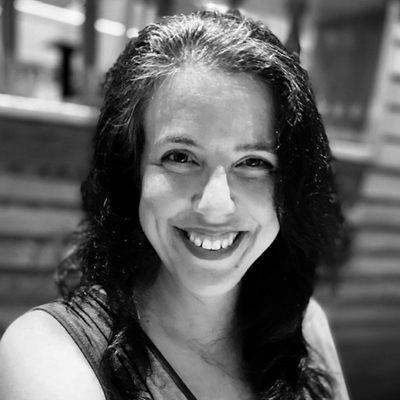
Tianna Fallgatter (Community Health Workers, Session 1)
Tianna Fallgatter is an accomplished healthcare leader with a robust background in strategic program design and management. Tianna was a participant in the 2018-2019 Community Health Worker (CHW) Task Force and final recommendations which resulted in the formation of the CHW Leadership Committee. Currently, Tianna serves as the Chair of the CHW Leadership Committee, where she continues to advocate for policies that enhance the effectiveness and sustainability of community health workers in Washington state. With over 15 years of experience in healthcare administration, budgeting, policy and advocacy and stakeholder engagement, Tianna is dedicated to improving health outcomes and ensuring equitable access to healthcare services. In her free time, Tianna enjoys acting as an advocate for parents and caregivers of neurodiverse children and youth and those living with learning, mental and behavioral health challenges. She lives in Seattle with her partner, three children, and six emotional support cats.
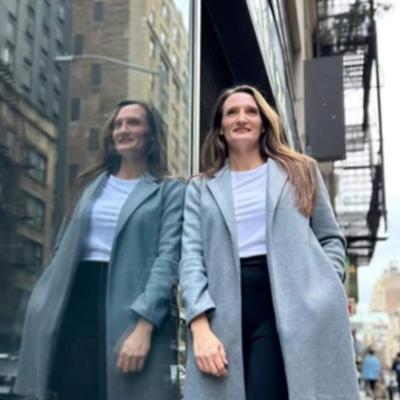
Alizz Quarles (Behavioral Health, Session 2)
Alizz Quarles is the Prevention & Intervention Specialist in the Vancouver School District, where She leads the implementation of Fort Vancouver High School’s (FVHS) Project SUCCESS. Project SUCCESS is an evidence-based practice to implement school-based services by addressing risk and protective factors associated with substance use, violence and mental health. Most importantly these include early indication and increased accessibility to needed support services. She manages the FVHS T4T mentor program, The GREAT Prevention Club and provides school-based counseling services within the school.
Alizz currently sits on the steering committee for Central Vancouver Coalition, as an active member, she works to address substance use related issues in the community to reduce the impact of substance use on youth within the boundaries of Fort Vancouver High School.
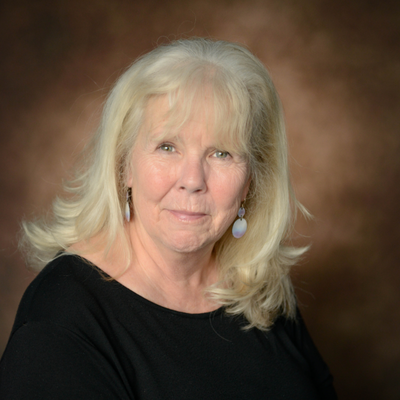
Dr. Kathy Burgoyne (Community Health Workers, Session 1)
Dr. Kathy Burgoyne, with 40 years in leadership experience working to create enduring health equity by collaborating with key organizations to provide innovative and effective health and prevention programs for people most affected by health inequities. Kathy’s passion is on the development of policies and programs that support Community Health Worker and other peer support programs. She holds a PhD from the University of Washington.
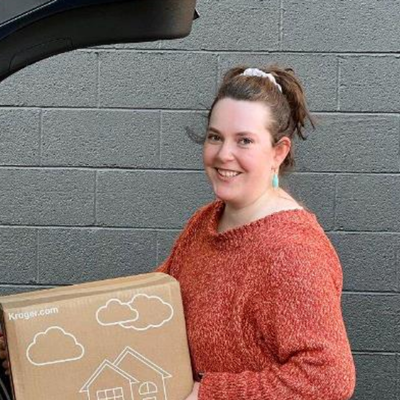
Abby Brandt Whalin (Rural Health, Session 2)
Abby Brandt Whalin joined WAGAP in 2021 as the Director of the Pathways Department. She values community connection and strives to empower the people she works with to create long lasting change.
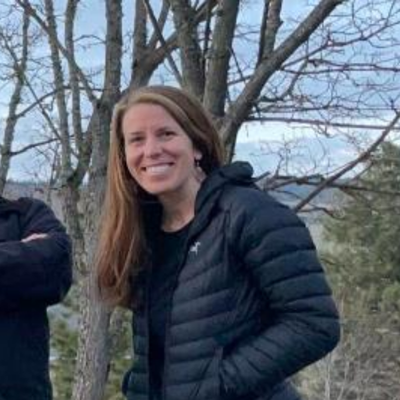
Gaby Swisher (Rural Health, Session 1)
Gaby Swisher has a Masters of Social Work and a Master of Public Health from Portland State University and Oregon Health Sciences University. She is a Licensed Clinical Social Worker in both Oregon and Washington. She currently serve as the Behavioral Health Strategist for the Columbia Gorge Coordinated Care Organization at PacificSource. In this role, she is responsible for addressing the quintuple aim: improving population health, reducing costs, enhancing patient experience, ensuring care team well-being, and advancing health equity. Previously, she worked as a Behavioral Health Provider at a Federally Qualified Health Center in The Dalles, as a clinician on an Assertive Community Treatment Team, and in homeless and housing services.
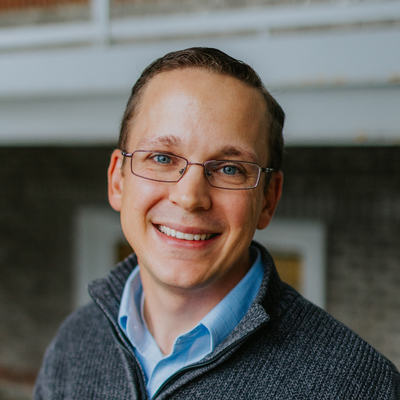
John Schapman (Rural Health, Session 1)
John Schapman is the Executive Director of Thriving Together NCW, an organization committed to ensuring all people and places in North Central Washington have the opportunity to thrive, no exceptions. His journey with Thriving Together NCW started when he was brought on as the program manager for the Washington State Innovation Model Grant in 2016 and he later took on the role of deputy director in 2019. Schapman has spent the last four years supporting operations, project management, finance, contracting, and the strategic planning process of the organization. Prior to working at Thriving Together NCW, Schapman worked in clinical management at PeaceHealth Saint John Medical Center in Longview, WA, as well as corporate and employee wellness programing.
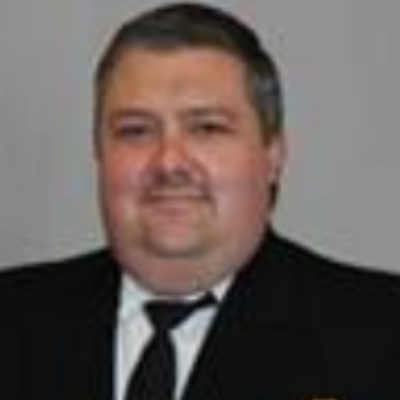
Chief Mike Jackson (Rural Health, Session 2)
Mike Jackson currently serves as the Assistant Chief of Community Risk Reduction and Fire Marshal for Clark-Cowlitz Fire Rescue in Southwest Washington. The Community Risk Reduction team that Mike serves with is responsible for an innovative and multi-faceted mobile integrated health program along with traditional fire marshal services, investigations, technical plans review, public education, and public information and outreach. Mike holds a Bachelor of Science Degree in Fire Protection Administration from Eastern Kentucky University and a Master of Public Administration Degree from the University of Washington along with several industry certifications. With 27 years of experience in fire and emergency services, Mike has worked in 5 states for municipal, township, special district, and private emergency service organizations in addition to work in the health and safety field with a major airline. Mike has served as a Chief Officer for over 19 years with leadership experience in all areas of fire service organizations, including operations, community risk reduction, logistics, and administration.
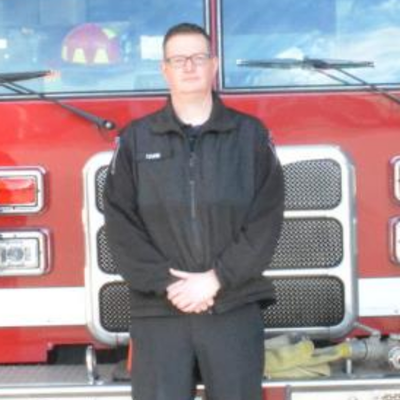
Sam Lewis (Rural Health, Session 2)
Sam Lewis has worked in behavioral health and social services field for over 20 years. Sam graduated with a Bachelor of Arts in Psychology and Sociology from Western Kentucky University and a Master of Social Work from Eastern Washington University. He has worked with several behavioral health agencies in a direct service role capacity and on the program development and supervision/management side. Sam has helped to develop several programs as well as worked with state agencies, community outreach, and community/interagency partnerships. Sam has an interest in co-responder models as he recognizes the link between first responders and community members requiring behavioral health and other social, medical, and environmental supports and interventions. Sam is currently the Program Manager with Clark-Cowlitz Fire Rescue’s Community Assistance Referral and Education Services (CARES) and Behavioral Health Crisis Response Programs serving community members who need assistance with accessing and navigating through appropriate resources to reduce the risk of emergencies and dependence on 9-1-1.
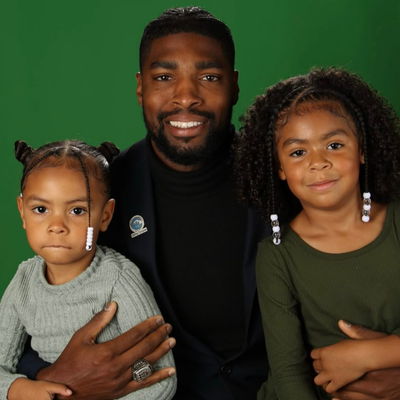
Rashan Williams Jr. (Rural Health, Session 2)
Rashan Williams Jr., a dedicated youth mentor and restorative justice advocate, channels his life experiences as the son of teenage parents from Los Angeles into a passion for serving at-risk youth. Understanding the critical role of positive role models, Rashan focuses on supporting children who lack mentorship opportunities, driven by his own upbringing and the disparities he witnessed. As a father, coach, and community activist, he aims to inspire and empower BIPOC communities and youth, helping them navigate today’s challenges and achieve their full potential through his work with Shifted Theory LLC.
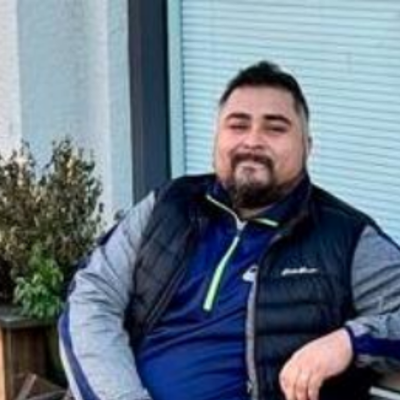
Pedro Garcia Rodriguez (Rural Health, Session 2)
Pedro Garcia Rodriguez began working formally as a Community Health Worker in 2022, serving the Spanish Speaking population in Klickitat & Skamania Counties. He enjoys working with families and teenagers, helping people regain self-worth and motivating people through their capacity for change.
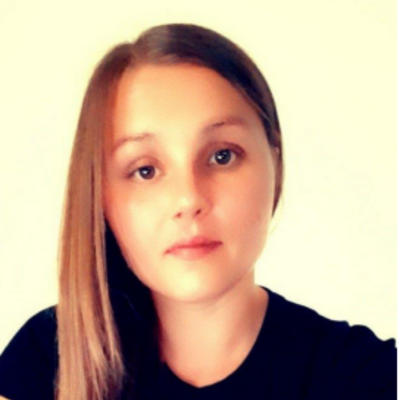
Samantha Reimer (Rural Health, Session 2)
Samantha Reimer has been a Community Health Worker since 2020, at the very start of the Pandemic. She primarily serves the very rural eastern portion of Klickitat County, and has a passion for working with the most undeserved and stigmatized community members.
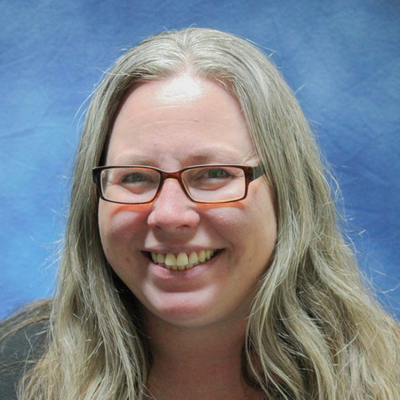
Jacky Snell (Behavioral Health, Session 1)
Hi, my name is Jacky Snell. I use she/her pronouns. I received my Bachelor of Social Work (BSW) from Eastern Washington University in 2014. I have been working as a Social Worker with Share since March of 2017. Starting out as a case manager at a day shelter, I eventually moved to Share’s Outreach Team, and now have the privilege of taking on a new role as the Outreach, Syringe Service Program, and Community Wellness Manager. I am currently helping support 2 pilot projects. The first is Drug Checking through the University of Washington that allows people who use drugs to get them tested and make an informed decision if they want to use or how they will proceed with use of the drug.
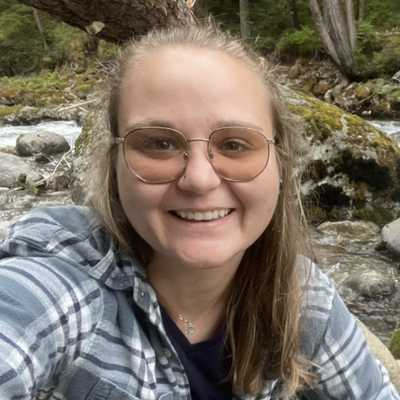
Lauryn Sanders (Behavioral Health, Session 1)
I have been working in the community mental health since 2017 with various populations to include developmental and intellectual disabilities, substance use disorders, severe and persistent mental illness, co-occurring disorders, crisis stabilization, and unhoused individuals. I have been at Columbia River Mental Health Services since 2020, starting with my clinical internship in graduate school. I have worked in multiple programs and positions at CRMHS including, Substance abuse counselor at a Medication assisted treatment program, co-occurring treatment, mobile health mental health professional, and program manager for mobile services.
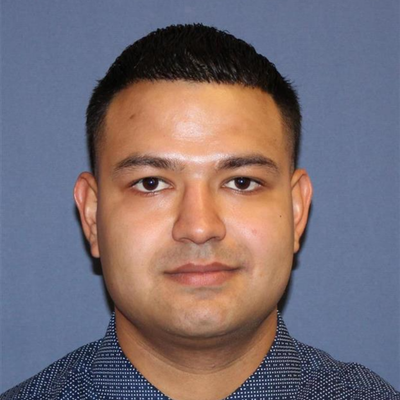
Joaquin Vidrio Ruiz (Community Health Workers, Session 1)
Joaquin was born and raised in the Yakima Valley and is dedicated to serving the community. He is strongly passionate about improving health outcomes.
He is bilingual with a BA in Public Health from Central Washington University with specialization in community health.
Joaquin has been with CHCW for 7 years focusing on improving access to care and engagement. He is also an avid fisherman that loves to explore the outdoors and all the great things in the PNW.
Being raised in the Yakima Valley and by Latino parents, Joaquin is extremely passionate in assuring that his community can access care in a culturally competent way.
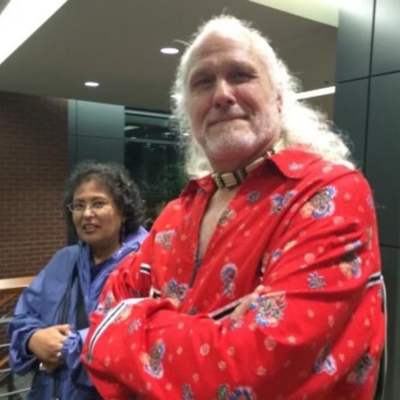
Roben White (Native & Tribal Track, Session 2)
Roben White is a Lakota-Cheyenne organizer (enrolled Oglala, Pine Ridge) and a dedicated member of the WSU Vancouver Native American Community Advisory Board (NACAB). As a long-time organizer with WSU Vancouver’s Collective for Social and Environmental Justice (CSEJ), White co-created and coordinates CSEJ’s “The Thin Green Line is People History Project,” a digital archive documenting the Pacific Northwest fossil fuel resistance and climate justice movement. A seasoned labor organizer and former President of IUPAT Local 10, White also has a background in business. Additionally, White is an internationally exhibited sculptor and painter.
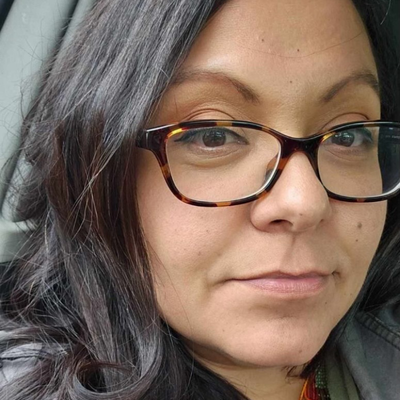
Julian C. Ankney (Native & Tribal Track, Session 2)
Julian C. Ankney is a Niimíipuu (Nez Perce) scholar and social justice advocate. As Director of Native American Programs and co-director of the Visiting Writers Series at Washington State University Vancouver/Pullman, she focuses on Indigenous language reclamation, sovereignty, and human rights. Her work raises awareness of Missing and Murdered Indigenous People (MMIP). Ankney teaches Native American studies, creative writing, and language revitalization. She is a voice on Portland’s KBOO radio, has been featured in multiple exhibits and publications, and is a member of the Indigenous literary group luk’upsíimey, The North Star Collective.
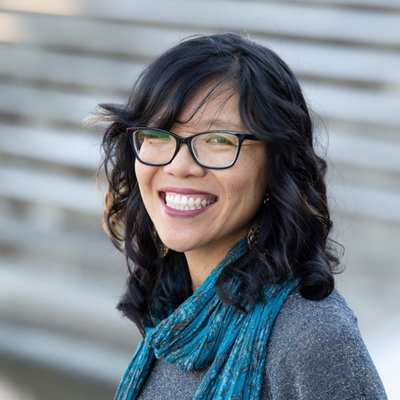
Ma.Caroline Lopez (Community Health Workers (CHW) + Policy & Advocacy, Session 2)
Ma.Caroline Malabanan Alonzo Lopez, she/they/até, is a queer, cisgender Filipina woman. She is a mother, partner, and até (ah-tay)/big sister to many. They center their practices around deep healing, community care, joyful liberation, systems transformation, and racial justice. As the Director of Equity, Racial Justice, and Culture for the Housing Alliance and the Housing Action Fund, Ma.Caroline trains staff in dismantling white supremacy culture within internal and external spaces, offers equity and racial justice trainings to Housing Alliance and Resident Action Project members, and has held affinity Black, Indigenous, and other people of color (BIPOC) spaces for many years. As a leader for equitable systems change, they are the co-founder and lead organizer of the Southwest Washington BIPOC Legislative Workgroup, a member of the Southwest Washington Equity Coalition, and support the community organizing work of the Resident Action Project. Ma.Caroline leads with love and believes in each person’s ability and power to do profound and transformative work for personal and systems change, through everyday, small, yet significant acts.
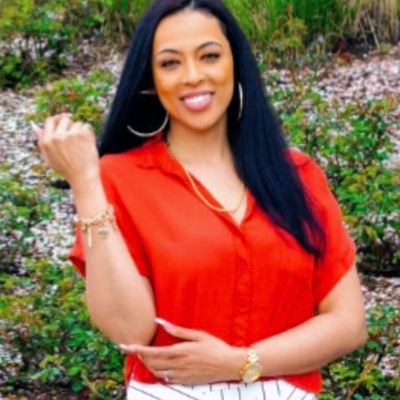
Mercedes White Calf (Native & Tribal Track, Session 1)
Mercedes White Calf is a member of the Oglala Sioux Tribe and serves as the Tribal Liaison at SWACH. Mercedes’ work focuses on partnering with Native, Tribal, and community partners to identify community needs and serve to identify ways SWACH
can partner to eliminate health disparities across the southwest Washington region.
Mercedes has 10+ years of professional experience in tribal relations and advocacy. She received her bachelor’s of science from the University of Oregon. Mercedes accredits the long line of Lakota Sioux women that raised her, for her strength, passion, kindness, and courage.
Mercedes has worked to create avenues and opportunities for her community, despite facing myriad barriers to making change. Her belief is that our communities are powerful and creative; they can create change for generations to come.
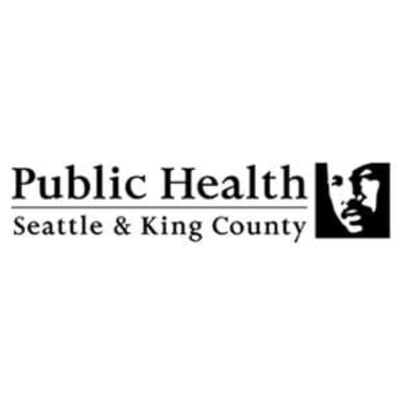
Mariel Torres Mehdipour (Community Health Workers, Session 1)
Mariel Torres Mehdipour’s experience in public health has spanned over 25 years and has focused on improving health and equity through community-led efforts. As part of Public Health – Seattle and King County’s (PHSKC), Office of Equity and Community Partnership, Mariel serves as the department’s Deputy Equity Officer. Prior to this, she served as the COVID-19 Response Equity Officer and as Section Manager for PHSKC’s Chronic Disease and Injury Prevention Unit.
Originally from Los Angeles, California; Mariel is the daughter of Mexican immigrants and is the first in her family to attend college, obtaining a Bachelor of Arts in Italian from the University of California, Los Angeles and a Master’s in Public Health in Health Promotion and Education from the Arnold School of Public Health at the University of South Carolina. After living in both South Carolina and Philadelphia for five years, she returned to California where she worked at the UCLA, School of Public Health. Before joining PHSKC in 2016, Mariel worked at the Kern County Public Health Services Department where she served as a Health Educator, Public Health Planner, Health Promotion and Public Information Director, and Director of Community Wellness.
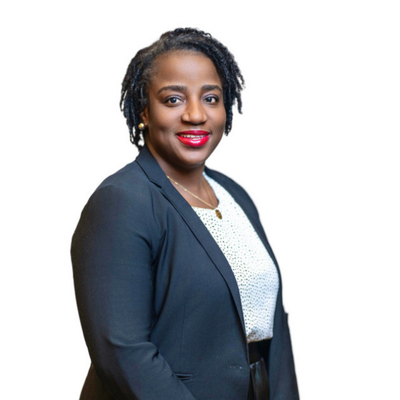
Charlene McGee (Collective Impact and Equity – Panel Discussion)
Charlene McGee, EMPA is a passionate and devoted public health leader with over two
decades of experience. As the Director of Prevention and Health Promotion at the
Multnomah County Health Department, she leads initiatives focused on chronic disease
prevention, violence prevention, adolescent health, health promotion, and addressing
racial and ethnic health disparities. She is the Principal Investigator for the Racial and
Ethnic Approaches to Community Health (REACH) Grant, a role in which she
collaborates with multi-sectoral partners and the ACHIEVE Coalition to implement
targeted strategies that reduce chronic disease burden and disparities. Charlene has
been a pivotal figure in Multnomah County’s COVID-19 response, centering the needs
of marginalized communities and saving countless lives through her work on overdose
prevention, syringe exchange, and COVID-19 recovery efforts. Her experiences as a
Liberian-Oregonian and Black immigrant deeply informs her commitment to justice,
equity, and community empowerment. A skilled collaborator and connector, Charlene
has a proven track record of building strong community partnerships and advocating for
sustainable change. Her leadership extends to local, national, and regional boards, and
she was recently invited to speak at the White House Conference on Health, Hunger,
and Nutrition. Charlene holds a BS in Health Promotion and Education from Oregon
State University and an Executive Master in Public Administration from Portland State
University
